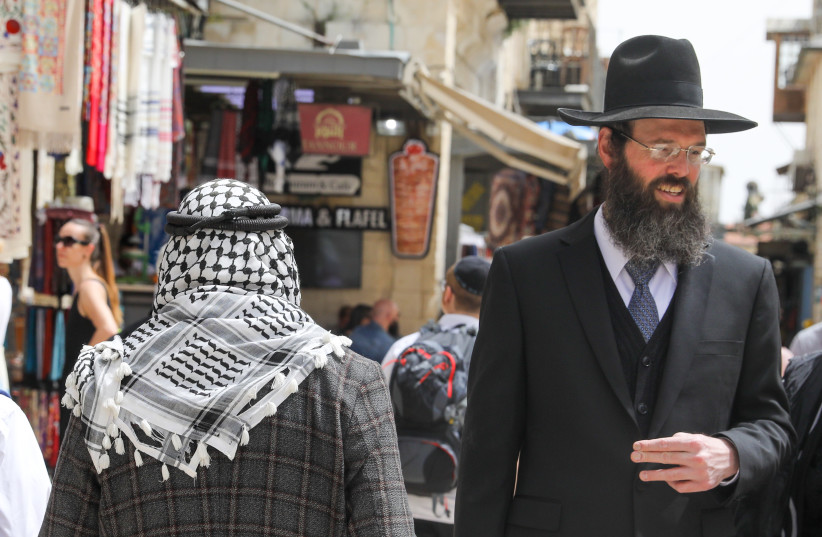The violence that erupted on the Temple Mount in Jerusalem was like a scene on repeat: Violent rioters armed with stones, fireworks and wooden planks confronted hundreds of well-armed Israel Police officers.
Close to 500 Palestinians were arrested and dozens injured.
It was a scene that last year led Hamas to fire seven rockets from the Gaza Strip toward Jerusalem, leading to an 11-day conflict, dubbed Operation Guardian of the Walls by the IDF. This year, so far, there have only been warnings from Fatah, Hamas and other terrorist groups in the blockaded coastal enclave, saying Jerusalem is their red line that cannot be crossed.
Israeli security forces, who are already heavily deployed throughout the West Bank and inside Israeli cities due to a spate of deadly terrorist attacks earlier this month, do not want the situation to escalate.
The Temple Mount and al-Aqsa Mosque are considered holy by millions of Jews and Muslims, and the month of Ramadan sees tens of thousands of Muslims worshiping there on a daily basis. On Friday morning, six hours after the most violent clashes broke out since the start of Ramadan, 50,000 Arabs came to worship.
Peacefully.

But what is happening following morning prayers is anything but peaceful. Security forces are walking a fine line between keeping Israelis safe while at the same time not going over the line in curtailing religious freedom – be it Islamic or Jewish.
Several radical Jewish Israelis have been arrested for trying to enter the Temple Mount compound to perform ritual sacrifices there over the past few days.
On Sunday morning, Israel Police once again entered the Temple Mount compound after Palestinians attempted to block Jewish visitors from entering the site. Police said that hundreds of masked youths had again stockpiled rocks and iron bars to prevent Jews from entering the compound.
Later that morning, several Egged buses heading towards the Western Wall in the Old City were targeted by Palestinians who pelted the buses with large rocks. Several passengers, including a 13-year-old girl, were injured.
The videos from the compound since Friday, including footage of police officers clubbing worshippers and smoke grenades exploding in the mosque itself, could have been the match needed to light the rocket launchers in Gaza.
Over the past month of tension, with close to 20 Palestinians killed since the beginning of the month, Hamas has restrained from launching rockets and has worked to prevent other factions in the Strip from doing the same.
IDF raids in the West Bank cities of Jenin, Tulkarm, Nablus and neighboring villages have been violent and deadly.
But the group’s leader, Yahya Sinwar, cannot stay silent when Jerusalem and al-Aqsa ignite.
On Sunday afternoon, an incoming rocket siren was activated in Nahal Oz, which sits on the border with Gaza. While the mortars landed inside the Gaza Strip and the alert was canceled, it just shows how volatile the situation is.
The Gaza border communities, which have mere seconds to run to find shelter after the sirens sound, have borne the brunt of most of the rockets fired from the Hamas-ruled enclave. They are on the frontline, and unlike Israeli responses to rockets being fired at Jerusalem or Tel Aviv, there are rarely any real responses by Israel when these border communities are targeted.
Israel has vowed that it will respond with full force to any violence that comes from Gaza, but with the situation so explosive, the IDF has to balance the security of Israeli civilians against another full-blown war.
It’s a thankless task, and no matter what Israeli security forces will do, they will be blamed by one side or the other.
Either they are doing too much or they are not doing enough.
